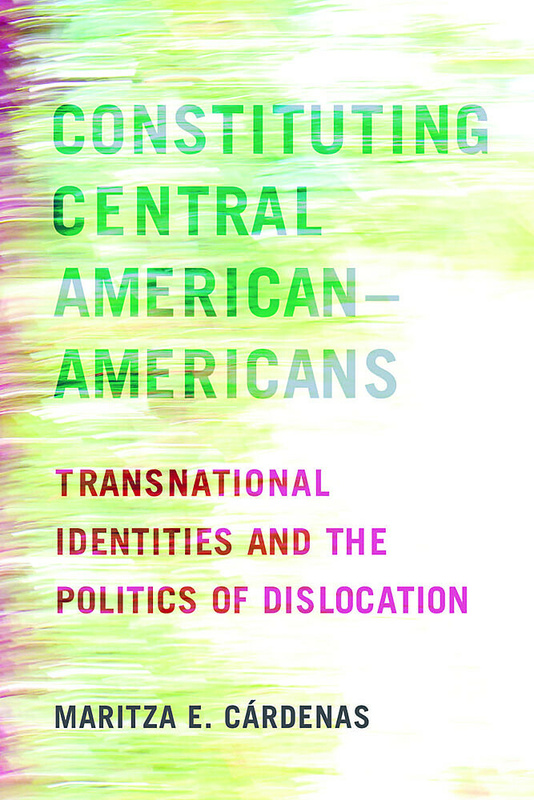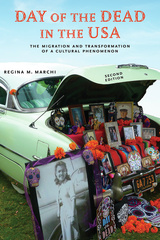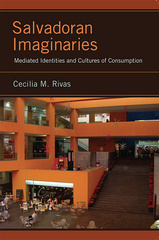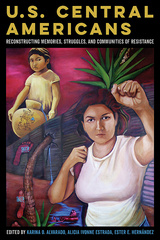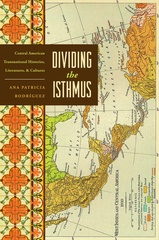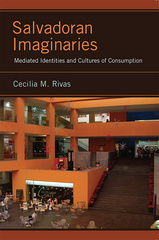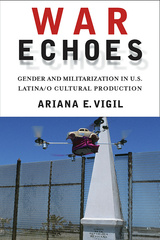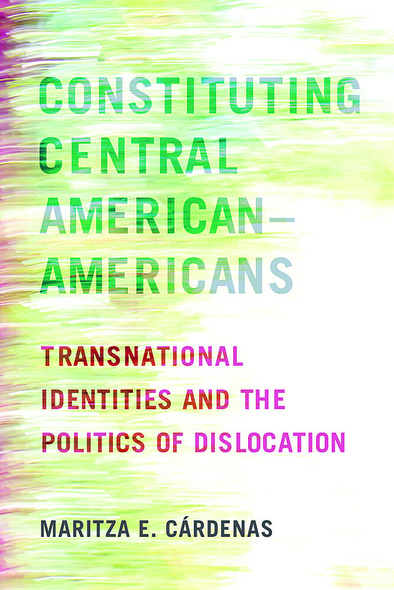
198 pages, 6 x 9
9 figures
Paperback
Release Date:09 Jul 2018
ISBN:9780813592824
Hardcover
Release Date:09 Jul 2018
ISBN:9780813592831
Constituting Central American–Americans
Transnational Identities and the Politics of Dislocation
Rutgers University Press
Central Americans are the third largest and fastest growing Latino population in the United States. And yet, despite their demographic presence, there has been little scholarship focused on this group. Constituting Central American-Americans is an exploration of the historical and disciplinary conditions that have structured U.S. Central American identity and of the ways in which this identity challenges how we frame current discussions of Latina/o, American ethnic, and diasporic identities. By focusing on the formation of Central American identity in the U.S., Maritza E. Cárdenas challenges us to think about Central America and its diaspora in relation to other U.S. ethno-racial identities.
Constituting Central American-Americans represents an important, well-theorized intervention in Latina/o Studies by challenging the erasure of Central Americans by their Latino counterparts and the broader mainstream culture in the United States.
Maritza Cardenas’s deeply engaging book provides an authoritative account of the reimagination of Central America by those displaced subjects presently ensnared in US immigration politics, and still seeking validation in their new home. Her examination of the diasporic nostalgia of US Central American cultural practices traces a complex history dating back to the nineteenth century. Cardenas has written the best explanation I have ever read of these thorny issues now at the center of present-day national politics. This book is certainly an academic tour de force.
This book is a must read for Latinx Studies scholars. Lucidly written, it offers us multiple cultural and discursive approaches from which to understand the collective centrality of Central Americans in the diaspora, their transnationalities, the politics of recognition and de-recognition, and the relationalities to hegemonic Mexicanidades. Maritza Cárdenas argues for a more complicated understanding of Central American Americans as new diasporic ethnic sociocultural subjects in the United States. I most welcomed the author’s relational analysis of Central Americans passing for Mexican in Los Angeles, one that sets a high bar for future studies of interlatino/a power differentials and horizontal hierarchies.
Chronicle of Higher Education weekly book list,' by Nina C. Ayoub
Constituting Central American-Americans breaks new ground and brings new insights to the fields of Latinx studies and ethnic studies.
Maritza E. Cárdenas’ Constituting Central American-Americans offers an exploration of the complexities of Central American imaginaries, both within the isthmus and within the U.S. diaspora, that is both instructional and revitalizing.
Constituting Central American-Americans represents an important, well-theorized intervention in Latina/o Studies by challenging the erasure of Central Americans by their Latino counterparts and the broader mainstream culture in the United States.
Maritza Cardenas’s deeply engaging book provides an authoritative account of the reimagination of Central America by those displaced subjects presently ensnared in US immigration politics, and still seeking validation in their new home. Her examination of the diasporic nostalgia of US Central American cultural practices traces a complex history dating back to the nineteenth century. Cardenas has written the best explanation I have ever read of these thorny issues now at the center of present-day national politics. This book is certainly an academic tour de force.
This book is a must read for Latinx Studies scholars. Lucidly written, it offers us multiple cultural and discursive approaches from which to understand the collective centrality of Central Americans in the diaspora, their transnationalities, the politics of recognition and de-recognition, and the relationalities to hegemonic Mexicanidades. Maritza Cárdenas argues for a more complicated understanding of Central American Americans as new diasporic ethnic sociocultural subjects in the United States. I most welcomed the author’s relational analysis of Central Americans passing for Mexican in Los Angeles, one that sets a high bar for future studies of interlatino/a power differentials and horizontal hierarchies.
Chronicle of Higher Education weekly book list,' by Nina C. Ayoub
Constituting Central American-Americans breaks new ground and brings new insights to the fields of Latinx studies and ethnic studies.
Maritza E. Cárdenas’ Constituting Central American-Americans offers an exploration of the complexities of Central American imaginaries, both within the isthmus and within the U.S. diaspora, that is both instructional and revitalizing.
MARITZA E. CÁRDENAS is an assistant professor of English at the University of Arizona in Tucson.
Introduction
Part I: The Isthmus Imaginary: La Patria Grande Centroaméricana
1. Remembering La Patria Grande: Locating the Nation in Central American History
2. Constructing the Central American National Imaginary
Part II: The US Diaspora: Little Central America
3. Performing Centralamericanismo: Heterotopias and Transnational Identities at the COFECA Parade
4. Subjects in Passing: Central American-Americans, Latinidad, and the Politics of Dislocation
Epilogue: La Bestia and Beyond: Migration and the Politics of Mourning
Acknowledgments
Notes
Bibliography
Index
Part I: The Isthmus Imaginary: La Patria Grande Centroaméricana
1. Remembering La Patria Grande: Locating the Nation in Central American History
2. Constructing the Central American National Imaginary
Part II: The US Diaspora: Little Central America
3. Performing Centralamericanismo: Heterotopias and Transnational Identities at the COFECA Parade
4. Subjects in Passing: Central American-Americans, Latinidad, and the Politics of Dislocation
Epilogue: La Bestia and Beyond: Migration and the Politics of Mourning
Acknowledgments
Notes
Bibliography
Index

